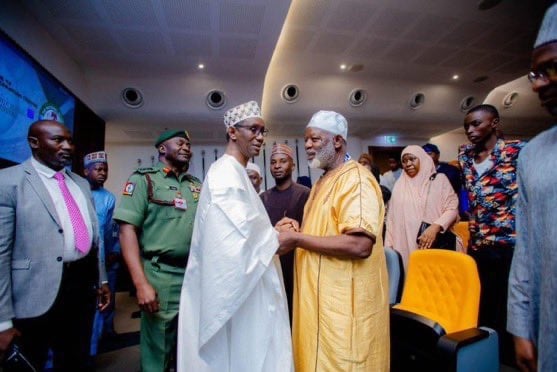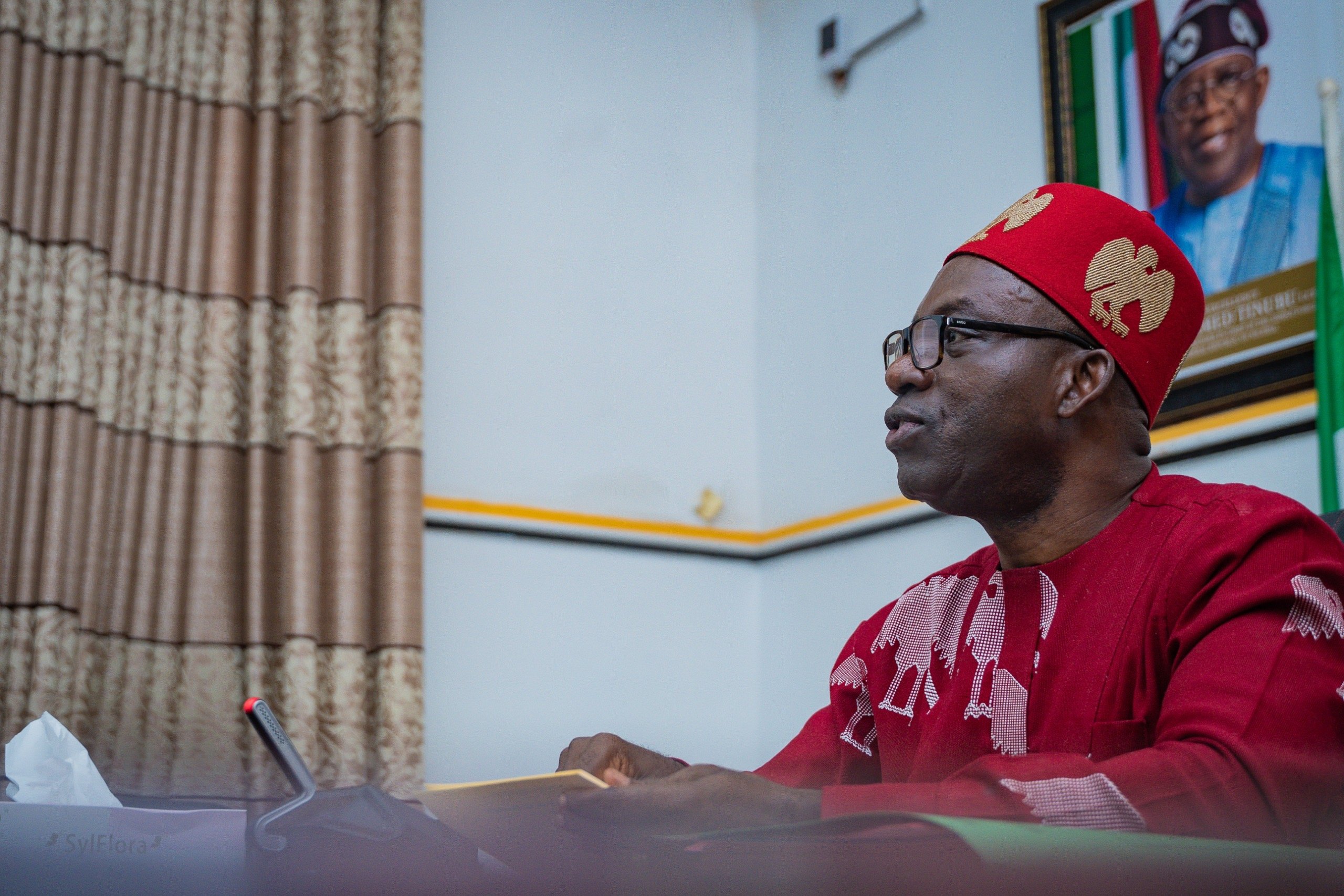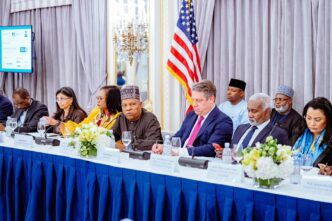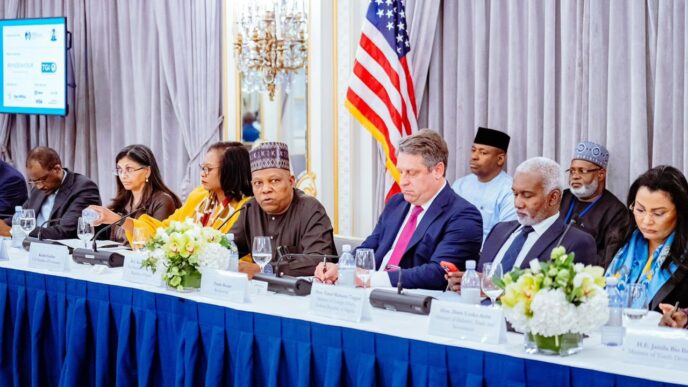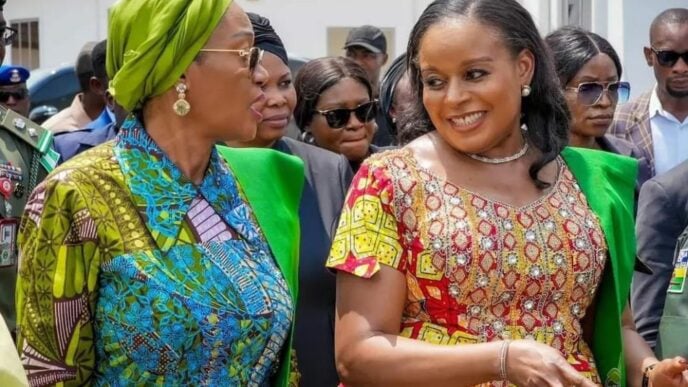Nuhu Ribadu and Brigadier General Tsiga
If the kidnapping of a retired Brigadier General doesn’t shock you, then perhaps nothing will. When I heard that former National Youth Service Corp (NYSC) Director General, Brigadier General Maharazu Tsiga, spent 56 days in captivity, I was stunned. But what left me completely dumbfounded was learning that military brass had to gather money to pay his ransom.
Let that sink in for a moment. A General – not some random civilian like you and me – a General!
To be sure, Brigadier General Tsiga was violently taken from his home in Tsiga Town, Katsina state, on February 5, along with nine others. One person was killed during the attack. After nearly two months in captivity, he was finally freed on April 2, to the relief of his family, who announced, “Alhamdulillah. Brigadier General Maharazu I. Tsiga is free.”
But how did this freedom come about? Not through a daring rescue operation by our security forces, but apparently through the payment of ransom.
Advertisement
Come to think of it, if our security agencies cannot rescue one of their own – a high-ranking military officer who served this nation – what hope is there for the average Nigerian? This is beyond embarrassing; it’s a damning indictment of our security architecture.
Trust our officials to play semantics with words. While authorities have maintained a deafening silence on whether ransom was paid, a WhatsApp message from another retired General, Ismaila Abdullahi, suggests otherwise. The message details how over 300 people – serving and retired military officers, civilians, university lecturers, ambassadors, and businessmen – contributed to secure Gen. Tsiga’s release after kidnappers demanded a staggering ₦400,000,000.
I thought I was reading fiction when I came across this part of the message: “Donations came in pouring like ‘August Rains’.” Is this what we’ve become? A country where military generals organise fundraisers to pay kidnappers?
Advertisement
This is not just bad PR for our military; it’s catastrophic. It’s a billboard advertisement to kidnappers that even our most protected citizens are fair game – and that they can expect handsome payments for their crimes.
The whole episode reminds me of the maxim: “If gold rusts, what will iron do?” If a retired general with decades of military experience and connections at the highest levels of our security apparatus can be held for ransom, then what chance does the average Nigerian stand?
What’s even more troubling is the precedent this sets. Each successful kidnapping and subsequent ransom payment emboldens these criminal elements. It’s Economics 101 – increased rewards lead to increased supply. In this case, the supply of kidnappings.
Personally, I think this development raises serious questions about our national security strategy. How can we win the war against banditry and terrorism when our generals – the very architects of our defence – become victims of the same security challenges they’re meant to solve?
Advertisement
I’ve always been reluctant to criticise our military. They’ve been the bulwark between us and complete anarchy. Without them, bandits and terrorists would have overrun the country long ago. But this incident demands scrutiny, not blind loyalty.
Let’s even assume the security agencies tried their best to rescue the General without success. Shouldn’t that prompt a complete overhaul of our security response systems? Shouldn’t heads be rolling by now? Shouldn’t someone be taking responsibility?
The national security adviser, Nuhu Ribadu, received Tsiga and 18 others in Abuja, marking what was described as “a significant milestone in ongoing efforts to combat kidnapping and insecurity in the country.” A milestone? Really? I struggle to see how paying ransom (or watching others pay it) constitutes a milestone in fighting crime.
Some might argue that I’m being too harsh. After all, what matters is that the General is safe and sound, reunited with his family. But zoom out and look at the bigger picture. Every successful ransom payment is a victory for the kidnappers and a defeat for our collective security.
Advertisement
I remember when Nigeria was battling with piracy in the Gulf of Guinea. International shipping companies were paying millions in ransom to pirates. It wasn’t until we took decisive military action and adopted a no-negotiation stance that the tide began to turn. The same principle applies here.
Some have argued that extreme situations call for pragmatic solutions. Valid point. But the question is: how has this pragmatism benefited the common man? If we normalise ransom payments, aren’t we simply financing the next round of kidnappings?
Advertisement
Ok, let’s put it this way. If a brigadier general with all his connections and influence has to depend on charity to regain freedom, what chance does the average Nigerian stand? What happens when you–yes, you reading this column right now–get kidnapped? Will there be 300 well-connected individuals willing to contribute to your freedom?
The truth is, kidnapping has become a booming industry in Nigeria. From the north to the south, no region is immune. According to security reports, kidnapping cases have risen to astronomical heights in recent weeks. Yet our response seems to be stuck in the cycle of reaction rather than prevention.
Advertisement
I strongly suggest that a comprehensive audit of our security apparatus be conducted immediately. We need to understand why, despite billions allocated to security, we still can’t guarantee the safety of our citizens, even the high-profile ones.
Do I support the payment of ransom? Absolutely not. It only perpetuates the cycle of violence and emboldens criminals. However, I understand the desperation of families who would do anything to secure the release of their loved ones. It’s a terrible choice no one should have to make.
Advertisement
I completely agree that we need to find sustainable solutions to this menace. Perhaps it’s time to consider state police despite fears of potential abuse by governors. Maybe we need specialised anti-kidnapping units with modern tracking technology and intelligence capabilities. Whatever the solution, the status quo is clearly not working.
Besides, we should not make the mistake of thinking this is just a security problem. It’s also economic, social, and political. As long as poverty, unemployment, and inequality continue to ravage our communities, criminality will find fertile ground to flourish.
The government needs to address the root causes of insecurity. Youth unemployment, poverty, and the widening gap between the haves and have-nots create a breeding ground for criminality. No amount of military force can substitute for economic development and social justice.
We also need to strengthen our intelligence-gathering capabilities.
Most kidnappings are not random; they are well-planned operations with insider information. Breaking these networks requires sophisticated intelligence work, not just brute force.
Politicians on both sides of the divide need to put aside their differences and confront this existential threat.
Blackmail and subtle threats won’t work against bandits who have no regard for authority.
Consequently, our security forces should be put in order and speak with one voice. If a general can be kidnapped and ransomed, then none of us is truly safe.
That’s my two cents on this embarrassing development. We need a radical shift in our approach to security. The lives of Nigerians – all Nigerians, not just the elite – depend on it. God save Nigeria.
Views expressed by contributors are strictly personal and not of TheCable.

